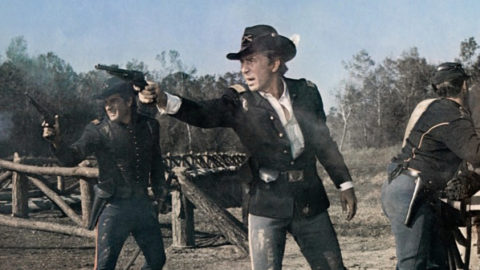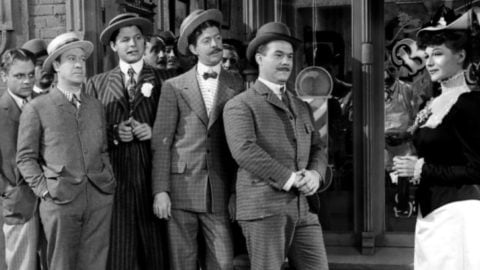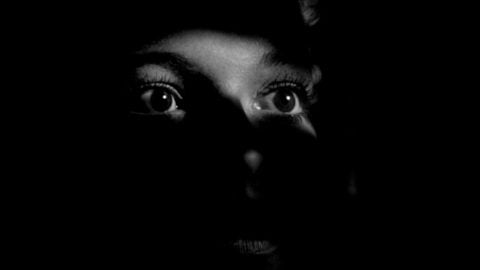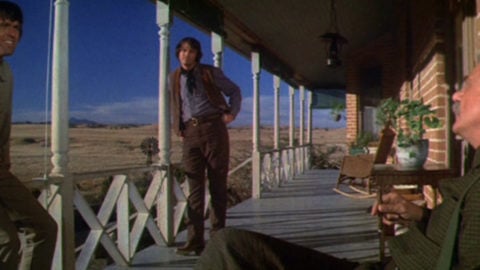TCM Diary: Man in the Wilderness
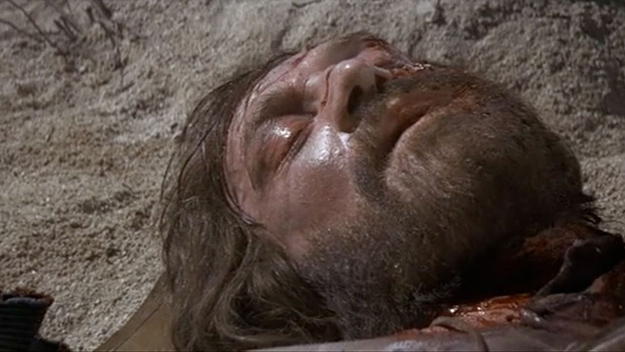
Forty-four years before Alejandro G. Iñárritu and Leonardo DiCaprio bagged Oscar gold for The Revenant (2015), two Richards—Sarafian and Harris (with screenwriter Jack DeWitt)—dramatized their own version of the Hugh Glass story. Man in the Wilderness (1971) a truish folktale embellished by time: Glass, a trapper and explorer with the Rocky Mountain Fur Company, went on an expedition led by Andrew Henry, only to be mauled by a grizzly bear and left for dead by his impatient colleagues. One of William Henry Ashley’s “Hundred” group of hearty mountain men, Glass was graced with a colossal threshold for pain and an awe-inspiring survival instinct. He managed to partially heal himself and set out to track his abandoners, stumbling for 200 miles, perhaps fueled by some vague notion of revenge.
Compared to Iñárritu’s much-hyped portrayal, Sarafian’s 1971 telling is the more satisfying of the two movies. Man in the Wilderness is leaner and more direct, and its psyche-providing flashbacks are more intelligently deployed than Iñárritu’s magic realism. Shot by cinematographer Gerry Fisher, the movie is also beautiful in its own right, rich with magisterial figure-in-a-landscape images and inserts of the early dawn sunshine slicing through branches and fog as ducks populate the foreground. The Province of Soria in Spain stands in adequately for the American West, even if the ranges here don’t really resemble the Rocky Mountains.
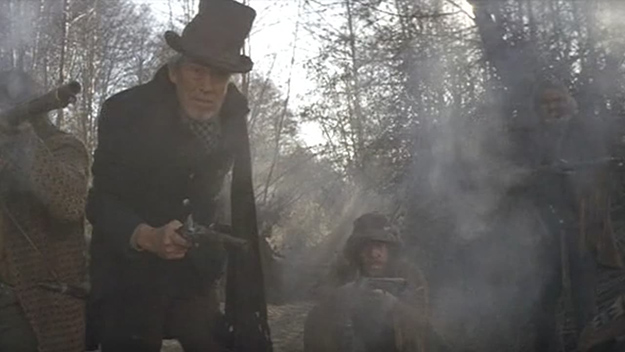
While The Revenant uses real names, Man in the Wilderness substitutes Hugh Glass with “Zachary Bass,” and Henry is now simply “Captain Henry,” played by John Huston in a role customized for his particular rangy, Alpine presence. Sporting a floppy stove top hat and jumbo-buttoned coat (with cravat peeking out), the Captain is as dapper as he is ruthless. Even though Bass is “like a son” to him—he found the orphan stowed away on Henry’s ship—Henry is swift to justify abandoning the wounded man, advising that if he isn’t dead by morning, his designated sitters should kill him. He tells his crew that “man is expendable . . . This is more than a trapping mission. We are here to explore the new America.” The speechifying is a smokescreen for the fact that the mauled, seemingly dying man is a nuisance, slowing down Henry’s mission to transplant a ship to the Missouri River. The men groan about having to haul the large, wooden behemoth (22 mules do the heavy towing), but the hubristic Henry is steadfast—loping about the deck and smoking in the moonlight, he has the unhinged tenacity of Fitzcarraldo or Captain Ahab (Huston made his Moby Dick in 1956).
As the crawling wounded, Harris is palpably pained, his despair and bitterness at his poor treatment kept in check in the service of finding food (raw bison, bone marrow and a live crayfish are among the entrees here) and not falling victim to wolves and the elements. The Irish actor was something of a mainstay in Westerns, in titles like Major Dundee (1965) and The Deadly Trackers (1973), up through Unforgiven (1992), in which he makes a massive impression with minimal screen time as the arrogant royalist English Bob. As bad as his Bass has it, he doesn’t seem substantially happier in the flashbacks, in which we see him wrestle with religious indoctrination at a Christian school, declare that he’s “never much agreed with God’s will,” and warning his unborn son that “It’s hell here on Earth, and for that I am truly sorry.” He also witnesses his mother and only parent, dead from cholera, being sewn into a body bag. And yet something of Bass’s faith has remained, evidenced by the mangled black bible he clings to throughout his trek. It’s a group of Arikara Native Americans who initially scare away Bass’s would-be gravediggers, and their surprising mercy toward the vulnerable trapper turns into a mutual respect during subsequent encounters. In one unusually drawn out scene, he watches an Arikara woman give birth in the woods, and the cycle of emotions that plays out on Harris’s face conveys both Bass’s empathy for the woman and self-flagellation at his own absentee fathering.
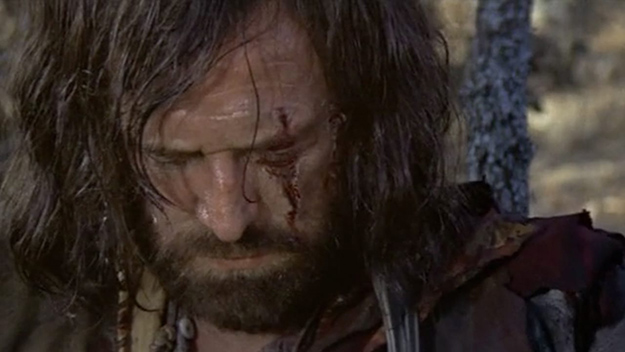
As an actor himself, Sarafian might have had unusual patience for the rigorous demands of Harris’s often solitary role. Born in New York City to Armenian immigrants in 1930, Sarafian befriended Robert Altman while stationed in Missouri as an Army reporter during the Korean War; he then married Altman’s sister. After assisting Altman for a bit, he became a television director of shows like Gunsmoke and Batman, and he directed the Twilight Zone classic “Living Doll” segment. Eventually he was making features, including the fascinating Andy (1965), about a mentally disabled New Yorker, in which handheld vérité mixes comfortably with fantastical, dreamlike passages. In Britain he made Run Wild, Run Free (1969) and the stylish braintwister thriller Fragment of Fear (1970), with a twitchy David Hemmings. The same year as Man in the Wilderness, he released the film for which he’s best known, the elegantly stripped-down muscle car movie standard, Vanishing Point, about Barry Newman’s amphetamine-fueled drive from Denver to San Francisco. Both films spackle in the character gaps with plentiful flashbacks—we learn that the driver’s angst stems from his girlfriend’s surfing-related death, and his anti-authoritarian rebellion to his disillusioning time on the police force.
Sarafian’s bizarre redneck family rivalry melodrama Lolly-Madonna XXX (well-cast with Robert Ryan, Rod Steiger and Jeff Bridges) followed in 1973, and he continued directing through 1990, dying in 2013. Meanwhile, his acting work increased. On screen, Sarafian brings a swarthy and hirsute comic energy, as in Alan Rudolph’s rollicking Songwriter (1984), as a gangsterish carpetbagger country music exec from Chicago named Rodeo Rocky (at one point he talks business while jiggling in a Mueller belt machine). Above all, Sarafian’s non-Vanishing Point directing work deserves to be better known. In Man in the Wilderness, he tells a remarkable story with visual panache (Bass’s addled POV shots stand out) and economy of dialogue. Beyond a story of man versus nature, it’s a tale of man versus himself, as Bass, the architect of his own unhappiness, tries to find his way to a better life.
Man in the Wilderness airs June 16 on Turner Classic Movies.
Justin Stewart is a writer whose work has appeared in Brooklyn Magazine, Reverse Shot and elsewhere.



